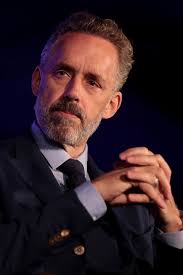The Impact of Jordan Peterson on Contemporary Thought

Introduction
Jordan Peterson, a clinical psychologist and professor, has gained significant recognition over the past few years for his views on psychology, culture, and personal responsibility. His rise to prominence came with the release of his book ’12 Rules for Life: An Antidote to Chaos,’ which has sold millions of copies worldwide. Peterson’s insights resonate with a diverse audience, highlighting subjects such as individualism, meaning, and the consequences of ideological thinking in our society.
Recent Events and Contributions
In recent months, Jordan Peterson has continued to influence discussions around mental health and personal development. He recently moderated a panel at the National Conservatism Conference, where he addressed the importance of culture and individual agency. During this event, he reiterated his stance that modern societies must navigate complex moral landscapes, urging individuals to seek meaning rather than succumb to nihilism.
Moreover, Peterson has faced significant criticism and support regarding his views on free speech and political correctness. His arguments often centre on the necessity of open dialogue, especially around contentious topics. This theme has been central to his speaking engagements across the globe, where he encourages audiences to confront their beliefs and engage in respectful discourse.
Public Reception and Controversy
As a polarising figure, Jordan Peterson attracts both ardent supporters and vocal critics. While many appreciate his advocacy for personal responsibility and mental resilience, opponents argue that some of his views may inadvertently reinforce negative stereotypes. Debates surrounding his perspectives often spill over into larger discussions about gender, identity politics, and the role of academia in shaping public discourse.
Conclusion
As Jordan Peterson continues to share his insights through lectures, podcasts, and social media, it is evident that his influence on modern thought is substantial. In a world grappling with uncertainty and ideological divisions, his call for personal responsibility and dialogue serves as a vital reminder of the importance of self-reflection and meaningful conversation. Looking ahead, Peterson’s impact on psychology and culture will likely continue, challenging individuals to seek purpose in an increasingly complex world.
